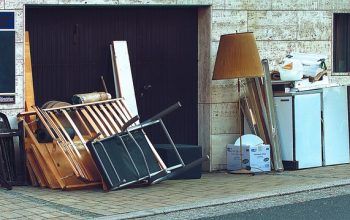Clutter in our homes directly impacts our emotional state, with disorganization contributing to anxiety or depression, while a tidy space fosters positive feelings and emotional freedom. Home organization acts as a powerful tool for mental well-being, helping let go of the past, embrace the present, and prepare for a clutter-free future. Achieving this involves strategic approaches like the 80/20 rule and KonMari method, along with regular decluttering sessions and storage solutions to maintain a calm, clear environment that supports focus on life's important aspects. By consistently letting go of unnecessary items, we transform our homes into emotional sanctuaries promoting mental clarity, resilience, and peace.
Unclutter your space, reclaim your peace. Discover how the act of decluttering goes beyond aesthetics; it’s a powerful tool for gaining emotional freedom. Explore the profound connection between clutter and our emotional state, revealing how a tidy environment can foster a calm mind. This article guides you through effective strategies for home organization and decluttering, offering practical tips to create lasting change. Learn how adopting these practices can enhance your well-being and sustain emotional freedom in the long term.
- Understanding the Connection Between Clutter and Emotions
- The Benefits of Decluttering for Emotional Freedom
- Strategies for Effective Home Organization and Decluttering
- Sustaining Emotional Freedom Through Long-Term Decluttering Practices
Understanding the Connection Between Clutter and Emotions
Clutter in our homes often mirrors the chaos and overwhelm we feel emotionally. When spaces are packed with unnecessary items, it can create a sense of tension and stress. Conversely, achieving home organization through decluttering can have a profound impact on our emotional state. A tidy environment promotes a calmer mind, allowing us to find clarity and peace.
The connection between clutter and emotions is deeply intertwined. Surrounded by disorganization, we may experience anxiety or even depression. Conversely, a decluttered space fosters positive feelings, encouraging emotional freedom. Home organization becomes a powerful tool for mental well-being, enabling individuals to let go of the past, make room for the present, and embrace a future free from the burden of excess possessions.
The Benefits of Decluttering for Emotional Freedom
Decluttering your space is more than just organizing; it’s a powerful tool for achieving emotional freedom. By letting go of items that no longer serve you, whether they’re physical possessions or mental clutter, you create an environment that promotes peace and clarity. A tidy home reflects a calm mind, allowing you to focus on what truly matters—your relationships, passions, and personal growth.
Home organization and decluttering go hand in hand with enhancing your emotional well-being. When your surroundings are free from excess and disorganization, you experience reduced stress levels and improved mental clarity. This sense of control extends beyond your physical space, empowering you to tackle life’s challenges with a renewed perspective. It encourages you to prioritize, making it easier to say no to distractions and yes to activities that align with your values and aspirations.
Strategies for Effective Home Organization and Decluttering
Achieving emotional freedom through effective home organization and decluttering involves a strategic approach that goes beyond simply cleaning out spaces. Start by identifying areas that contribute most to feelings of overwhelm, whether it’s a cluttered desk, an overflowing closet, or a kitchen cabinet filled with long-forgotten items. Implement the 80/20 rule, focusing on eliminating 80% of items that only occupy 20% of space, allowing for better organization and easier access.
Consider adopting the KonMari method, keeping only those items that “spark joy.” This approach ensures that your surroundings are filled with objects that serve a purpose and bring positive emotions, fostering a sense of calm and clarity. Regularly scheduled decluttering sessions, perhaps once a month, can help maintain order. Additionally, use storage solutions like bins, baskets, or shelves to categorize and contain items, making it easier to keep spaces tidy and clutter-free in the long term.
Sustaining Emotional Freedom Through Long-Term Decluttering Practices
Maintaining emotional freedom is a journey that intertwines with our physical surroundings, especially in the realm of home organization and decluttering. When we embark on a path of long-term decluttering, we not only transform our living spaces but also cultivate a sense of clarity and peace within ourselves. This process involves identifying and letting go of items that no longer serve us, whether emotionally or practically. By adopting consistent decluttering practices, we create an environment that reflects our values and supports our mental well-being.
A well-organized home becomes a sanctuary where we can unwind and find solace. It reduces the mental clutter that often arises from disorganization, allowing us to focus on the present moment and appreciate the beauty around us. Moreover, it enables us to navigate through life’s challenges with greater ease, as we are not weighed down by unnecessary possessions. This, in turn, fosters emotional resilience and freedom, enabling us to embrace change and new beginnings.
By understanding the profound connection between clutter and emotions, and adopting effective strategies for home organization and decluttering, individuals can gain significant emotional freedom. The benefits extend beyond a cleaner space; they include reduced stress, improved mental clarity, and enhanced overall well-being. Sustaining these practices over time ensures a lasting impact on one’s emotional landscape, fostering a sense of calm and control in even the most chaotic circumstances. Effective home organization and decluttering truly are powerful tools for achieving and maintaining emotional freedom.



